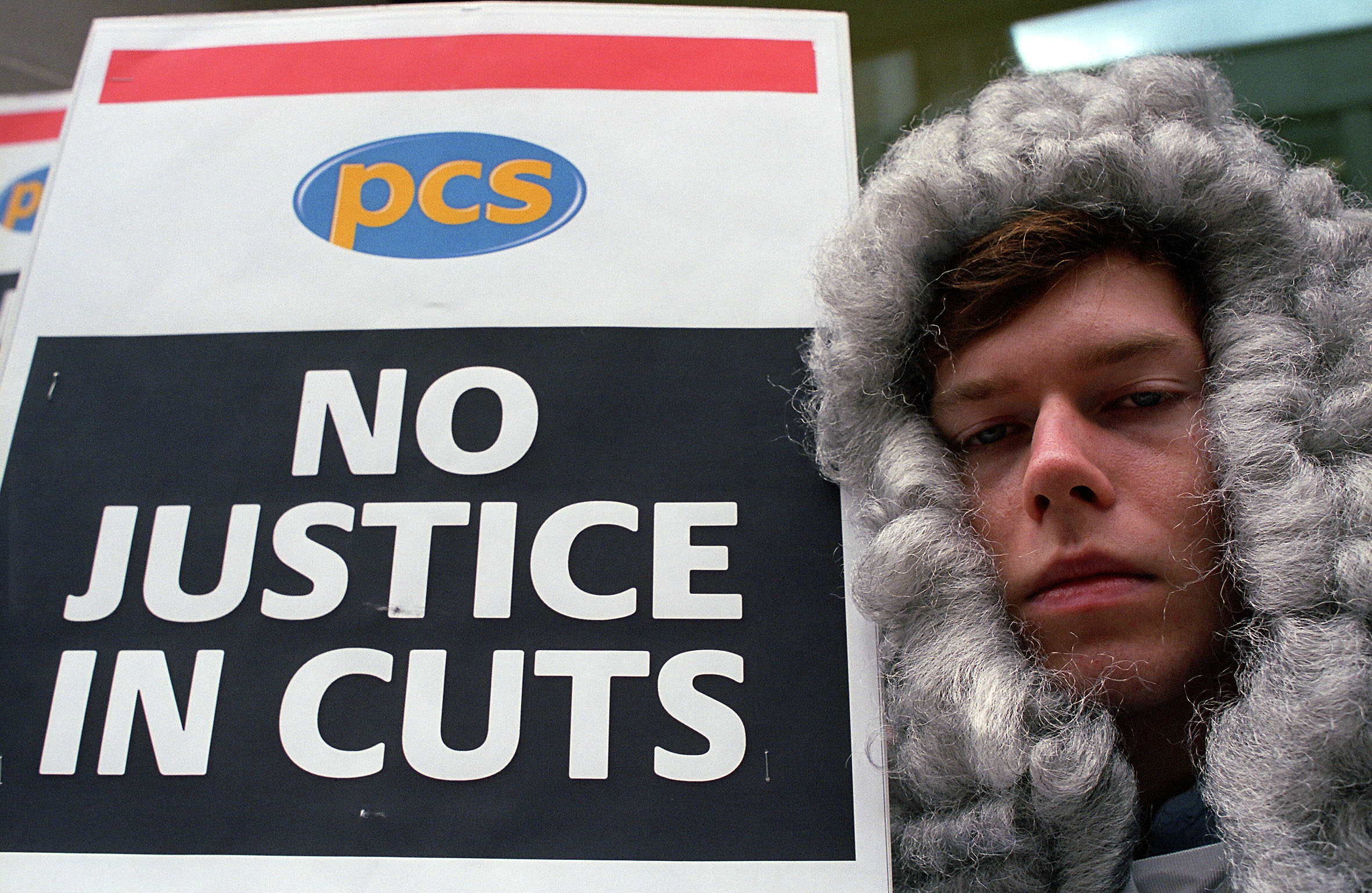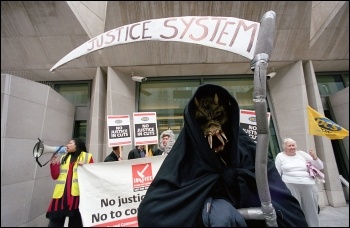Comprehensive Spending Review: Fight every Con-Dem cut
The scale of the proposed coalition government public sector cuts is becoming more apparent. The Comprehensive Spending Review (CSR) on 20 October will destroy the credibility of the Cameron/Clegg mantra that “we are all in it together” and that the cuts are fair.
John McInally, Public and Commercial Services union (PCS) vice-president, personal capacity
The policy of the left-led PCS national executive is that these cuts are neither necessary nor inevitable. PCS rejects the “consensus” that the media and all the major political parties have tried to build that there is no alternative to the cuts.
Our material argues that public spending is an investment, not a debt, that cutting public sector jobs will cause job losses in the private sector too, that the massive tax avoidance and evasion in Britain must be tackled. And that investment in public services, along with bringing the utilities back into public ownership, makes the need for cuts redundant.
Unfortunately, the majority of the TUC general council believes that only a minority oppose the cuts and that the trade union movement must tread softly. Their ‘strategy’ is to await the return of a Labour government. But Labour is committed to cuts, the only real difference is timing.
Despite the ‘softly, softly’ approach of the leadership, the recent TUC conference reflected the growing fear and anger of workers at what they face. The main composite on public services contained key demands from left-led unions like PCS, RMT and FBU, including the important call for the TUC to coordinate industrial action and to take the campaign into our communities.
Danny Alexander, the Liberal policy wonk who is now chief secretary to the Treasury, announced the coalition would take the strongest measures to tackle tax evasion, saying up to £9 billion would be recovered. But Alexander is not serious. The 25% cuts planned for HM Revenue and Customs make his announcement little more than spin and hot air.
The TUC failed to back PCS’s call for a national demonstration against the cuts on 23 October. Properly organised, such a demonstration would have potentially brought millions onto the streets and would have been a serious warning to the government.
The pressure applied by PCS, RMT and FBU has however forced the TUC to announce a national demonstration in March of next year. PCS will do all it can to make sure the TUC not only keeps its word and organises it, but also properly builds for it.
Build the demos
PCS is urging its members and activists to build for the demonstrations and other activities on the day of the CSR itself and on 23 October. There will be a major demonstration in Edinburgh and PCS is urging not only its Scottish but also Northern English members to attend.
Demos are being organised in other areas, like that called by the Bristol and District Anti-cuts Alliance. This body was set up by PCS, NUT and local community organisations and is attracting support from others unions regionally, including the GMB.
Building links with and leading the campaigns in our communities is at the core of the PCS anti-cuts strategy. Every time a library or swimming pool is ear-marked for closure the unions must be there offering solidarity and support.
PCS’s industrial strategy is based on building the widest possible alliance amongst the public sector unions and wider. These cuts will impact on all, not just public sector workers.
In 2005 PCS was proved right in standing firm in the face of New Labour’s attempt to steal our pensions. Several unions standing together forced them to retreat without a single strike day having to be called.
If the pensions review represents a major assault, then a public sector general strike could follow. £4.5 billion is spent on pensions for what are overwhelmingly low-paid public sector workers yet £10 billion a year is spent on tax relief for the richest 1%.
Industrial action against the cuts by individual unions, regions, departmental groups and workplaces is almost inevitable. Defeating the cuts may not rely on one or two set-piece national battles but the accumulation of disputes and grievances.
PCS will support all viable industrial action plans from its groups and branches but will also organise union-wide action when required.
PCS will do all it can to build the widest possible alliance with other unions and has just signed a Memorandum of Understanding with Unison. Given the nature of the leadership in that union, particularly its abominable witch hunting of socialists, there may be some surprise at this development. There needn’t be, Unison and PCS members have a common interest in standing shoulder to shoulder as their jobs and services are attacked.
The real proof of the agreement will be not just how it all works at national level but in building the strongest possible links and unity in action at regional, city, and local level.
Working people and the union movement face their biggest threat since the 1920s but this government has no mandate for its cuts. The coalition can be broken and defeated. PCS’s strategy is clear and is correct, no cuts, no division between public and private sector workers, build the widest alliance in the movement and our communities and we will defeat these barbarians.
Government scores own goal
The coalition government is attempting to circumvent opposition to their attacks on the Civil Service Compensation Scheme.
They want to force a Money Bill through parliament. But the PCS’s parliamentary campaign has made a considerable impact. Every MP in the country was contacted by a PCS member.
The Money Bill device is usually only used in an emergency and we believe it is unlawful. It is being used to avoid proper scrutiny, particularly in the House of Lords where it is unlikely to pass without amendment.
The Speaker of the Commons will decide whether or not it is proper. If not then the legislation would be required to go through the normal procedures.
PCS believes the legislation in itself is probably contrary to European law, specifically the Human Rights Act which specifies a government cannot legislate to remove a person’s possessions, which includes pensions.
If this is so, it will open up a major legal battle in Europe that might take years to resolve. It would allow any worker made redundant under the new legislation the opportunity to take legal action for compensation, something that could run into billions for the government.
While the coalition had a clear majority in the recent parliamentary debate the pressure of PCS lobbying and the potential pitfalls were reflected in contributions from ministers and MPs who were not quite so arrogant as they were when they first announced the legislation and expected PCS to roll over.
The debate contained direct attacks on PCS for refusing to bow to New Labour’s detrimental scheme. They tried to paint the union as unreasonable and isolated from the other unions. This cuts little ice as PCS represents 80% of those affected and was the only union to regularly consult its members rather than just accepting worse conditions.
However the coalition has scored an own goal by its even more draconian proposals which have united the civil service in opposition, something that PCS will work hard to maintain but not at the cost of selling out our members’ rights.










